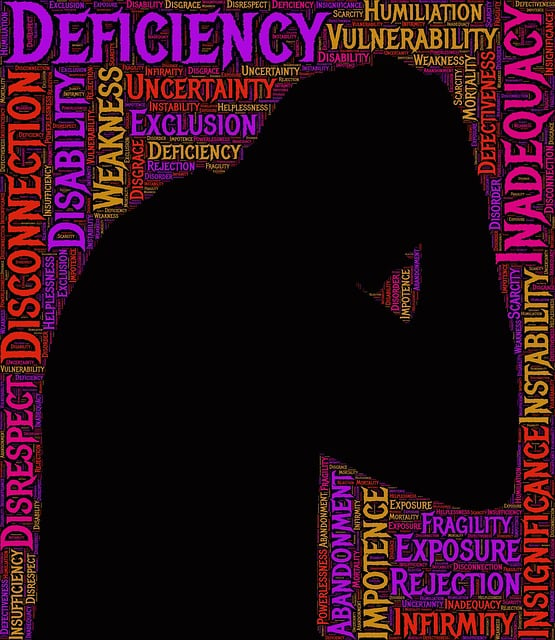Mental health professionals play a crucial role in providing safe and effective therapy for adults with postpartum depression (PPD). Risk assessment is key, encompassing detailed analysis of potential risks, vulnerabilities, and underlying causes like social isolation or past traumas. Strategies include crisis intervention, mindfulness meditation, compassion cultivation, self-reflection, and evidence-based practices. By integrating these techniques, therapists create supportive environments, foster resilience, and promote long-term mental health stability for clients facing PPD. They also navigate ethical responsibilities, confidentiality, and legal obligations while staying informed about mental health policies. Comprehensive risk assessments and open communication are essential to enhancing care quality and mitigating systemic risks in adult PPD therapy.
Mental health professionals are tasked with navigating complex emotional landscapes, including treating adults experiencing postpartum depression. Effective risk assessment is paramount to ensuring safe and ethical therapy. This article explores critical aspects of risk evaluation in mental health practice, with a focus on postpartum depression. We delve into identifying specific risks, ethical considerations, comprehensive assessment strategies, and mitigating dangers to enhance patient safety during therapy sessions for this vulnerable population.
- Understanding Risk Assessment in Mental Health Practice
- Identifying Risks Specific to Adult Postpartum Depression Therapy
- Ethical Considerations and Legal Obligations for Mental Health Professionals
- Strategies for Conducting Comprehensive Risk Assessments
- Mitigating Risks and Enhancing Safety in Therapy Sessions
Understanding Risk Assessment in Mental Health Practice

In mental health practice, risk assessment is a fundamental component that ensures the safety and well-being of both clients and professionals. It involves a thorough evaluation of potential hazards and vulnerabilities associated with an individual’s mental health status, especially in therapeutic settings. By understanding the unique challenges faced by adults suffering from postpartum depression, therapists can employ tailored risk assessment techniques to identify and mitigate risks effectively. This process includes recognizing warning signs, evaluating suicide or self-harm ideation, assessing the individual’s support system, and considering environmental factors that might impact their recovery.
A comprehensive risk assessment goes beyond identifying immediate dangers. It also involves exploring underlying factors contributing to mental health issues, such as social isolation, economic stress, or past traumatic experiences. This holistic approach enables therapists to design individualized treatment plans, integrate community outreach programs for enhanced support, and implement burnout prevention strategies for healthcare providers, fostering a resilient environment that promotes both client healing and professional longevity. Moreover, resilience-building techniques can help individuals navigate challenges and setbacks, ensuring long-term mental health stability.
Identifying Risks Specific to Adult Postpartum Depression Therapy

Mental health professionals treating adult postpartum depression (PPD) face unique challenges due to the highly sensitive nature of this condition. Identifying risks specific to PPD therapy is crucial for providing effective care. Key risks include the potential for intense emotional reactions from clients, as they may experience feelings of shame or guilt associated with their maternal experiences. Additionally, professionals must be vigilant about the risk of self-harm or suicide ideation, which can surface during therapy sessions due to the profound impact of PPD on an individual’s sense of self and ability to cope.
Guided crisis intervention techniques, such as those taught in trauma support services, are invaluable tools for managing these risks. Mindfulness meditation practices can also be integrated into therapy to help clients regulate emotions, reduce stress, and cultivate a sense of inner peace. By incorporating these strategies, mental health professionals can create a safe and supportive environment, enhancing the effectiveness of PPD therapy while mitigating potential risks.
Ethical Considerations and Legal Obligations for Mental Health Professionals

Mental health professionals have a dual responsibility when it comes to ethical considerations and legal obligations. They are not only bound by their professional codes of conduct, but also by the laws of the land in which they practice. When offering therapy for adults, particularly those suffering from postpartum depression, these professionals must navigate complex issues related to confidentiality, informed consent, and the best interest of the patient.
The balance between maintaining patient privacy and sharing necessary information with legal authorities or family members is a delicate one. Mental health policy analysis and advocacy play a crucial role in shaping laws that protect both patients’ rights and public safety. By staying abreast of changes in mental health policies, professionals can ensure they are fulfilling their legal obligations while also facilitating effective emotional healing processes and stress reduction methods for their clients, especially those dealing with postpartum depression.
Strategies for Conducting Comprehensive Risk Assessments

Comprehensive risk assessments for mental health professionals go beyond surface-level evaluations. They require a strategic approach that integrates various tools and techniques to gain a holistic understanding of a client’s psychological landscape, especially when addressing complex issues like postpartum depression in adult therapy settings. One effective strategy involves incorporating compassion cultivation practices into the assessment process. This involves fostering an environment where clients feel safe to express their vulnerabilities and emotions openly, thereby encouraging self-reflection and introspection.
Additionally, Mental Health Policy Analysis and Advocacy plays a crucial role in understanding broader systemic risks that might impact both professionals and their clients. By keeping abreast of relevant policies and advocating for evidence-based practices, mental health professionals can ensure they provide the best possible care while also mitigating potential risks. Encouraging patients to engage in Mental Wellness Journaling Exercises Guidance can offer insights into their emotional states, thought patterns, and behaviors, providing valuable data for a nuanced risk assessment.
Mitigating Risks and Enhancing Safety in Therapy Sessions

Mental health professionals play a crucial role in facilitating therapy for adults suffering from postpartum depression. To ensure safe and effective treatment, it’s essential to implement strategies that mitigate risks and enhance safety within therapy sessions. Effective communication strategies are vital; creating an open and non-judgmental environment encourages clients to express their feelings honestly. This fosters emotional regulation, enabling individuals to manage their emotions constructively during sessions and beyond.
Additionally, therapists can promote self-esteem improvement by validating clients’ experiences and offering evidence-based techniques tailored to their needs. By integrating these approaches, therapy sessions become transformative spaces where adults with postpartum depression gain tools to navigate challenges, fostering resilience and overall well-being.
Mental health professionals play a vital role in supporting individuals dealing with postpartum depression, but they must also navigate potential risks effectively. By understanding risk assessment principles, recognizing specific postpartum-related hazards, and adhering to ethical guidelines, therapists can conduct thorough evaluations. Comprehensive risk assessments enable professionals to mitigate dangers, enhance therapy safety, and provide tailored support for adults experiencing postpartum depression, ultimately fostering a secure therapeutic environment. This approach ensures that both the therapist and client are prepared to address potential challenges head-on during treatment.














